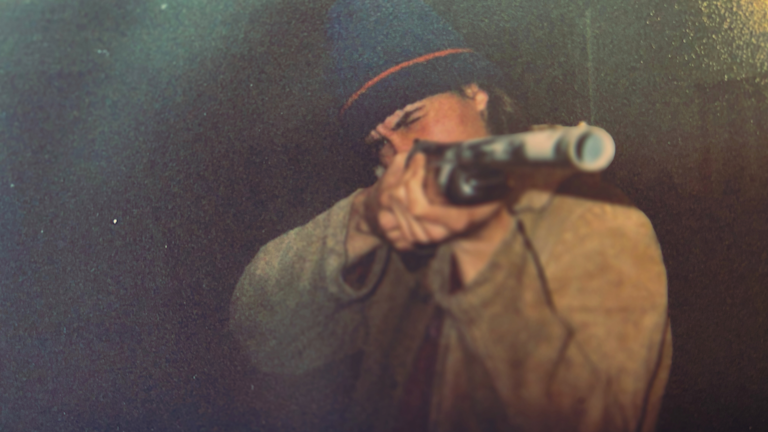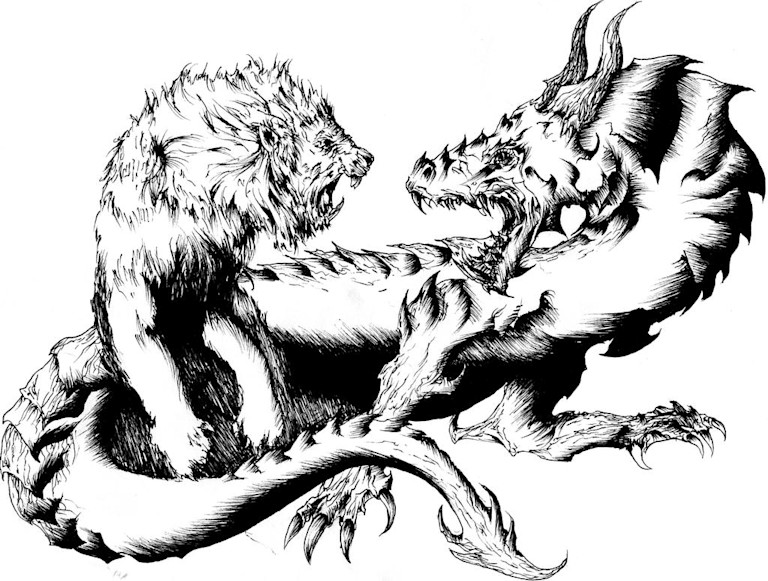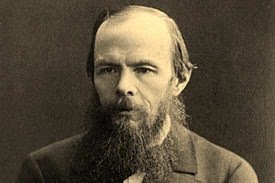May 31, 2024
It is difficult to pinpoint the precise moment when I attempted to “murder God.”
I wanted to suppress the notion of God, especially the conscience that was instilled in me. It was not necessarily in rebellious actions, such as the first time I got completely wasted at a friend's boat house, being held back by friends from falling to my death in the water. I shudder to think of how easily I could have lost my life.
Perhaps the murder took place when I was confronted by people in my community, who tried to persuade me not to continue in this trajectory, and I refused to listen to them.

However, perhaps the real death of God came with the conflict and tension it created with my parents, who were grieved by the choices I was making. They attempted to warn me that I was on a path of spiritual destruction, even flirting with an eternal life without God. They reminded me of what truly was at stake.
The fear of eternal judgment caused me both fear and resentment. It hardened my resolve in my newly discovered freedom of self-sovereignty. I needed to rid myself of the psychological burden of guilt. It raised the question of conscience, of good and evil.
For Nietzsche, that feeling of guilt and indebtedness that the believer owes to God is one of the greatest and deepest problems with Christianity. As Zarathustra says in a section called "On Priests," "Churches they call their sweet-smelling caves. Oh, that falsified light! That musty air! Here the soul is not allowed soar to its height. For thus their faith commands: 'Crawl up the stairs on your knees, ye sinners!' " (Thus Spoke Zarathustra, 252).
The Christian faith goes against the idea of our true materialistic nature and thwarts the potential of humanity to self create in new directions. The concept of original sin, argued Nietzsche, is a profound corruption, deeply embedded in a person born and raised in the European christian cultural context.
Apocalypse of the Soul
To uproot this unnatural unhealthy belief in God and the morality embedded within it, Nietzsche imagined a kind of apocalyptic war of the soul. In Thus Spoke Zarathustra, he depicted this as a battle between a lion and the dragon, where “in the loneliest desert, however, the second metamorphosis occurs: here the spirit becomes a lion who would conquer his freedom and be master in his own desert . . . for ultimate victory he wants to fight the great dragon” (Thus Spoke Zarathustra, 138).
The lion represents a new warrior spirit one must become in order to obtain and win one’s true freedom, to become our true natural self. This is a personal and cultural battle, not necessarily a political revolution. It occurs in the “wilderness,” a parody of Jesus resisting the devil in temptation (Matthew 4). The “dragon” to be overcome represents the values imposed on us and those we have internalized in our Western, Christian culture. It is a war against the deeper embedded belief that we are created in God’s image and therefore are indebted to God for the fulfilment and redemption of our human destiny.

It is a battle of wills, the "I thou" of the lion against the "you shall" of the dragon. This battle against the values of Christianity and its modernist, democratic inheritors is a battle for the future soul of humanity (Thus Spoke Zarathustra, 138).
In contrast, the aim for Nietzsche was to create a new innocence, the Overman (der Übermensch), who could create new values for society (Thus Spoke Zarathustra, 126). This would be the Nietzschean vision of a “new creation.” This is not a return to an original state of perfection like in the garden of Eden, but to create something, a way of being that has not yet existed. It is the creation of the new child, who creates his own good and evil, who forges his own path and identity. This was his vision of healing for Europe from the enslavement to the dragon.
I wish that my own struggle was as conscious and sophisticated as Nietzsche's was, but that is not the case. My struggle against what I perceived as the "dragon" was an unconscious, chaotic mess. There was a will within me that cried for freedom. Nietzsche would describe it as the "will to power."
I remember raging against the "you shall" of my parents, resisting the values I felt were being imposed on me. I was on the main flour of our house and ventured down into the basement. On the stairwell hung a painting of pristine domesticated nature, protected by a glass frame. With my fist I smashed it to pieces, leaving shards strewn along the steps. I left the house in a storm, venturing again, both literally and metaphorically into the wild.
Nature Gasps for Completion
Certainly, Nietzsche is right to suggest that much of our sense of moral (and religious) identity is shaped by values in culture narratives which we inherit and are even sometimes, forced upon us. There are, of course, even unhealthy values perceived as "Christian," imposed on us in well-meaning, but ultimately unhealthy ways. His critical insights on Christianity and Western values are still worth consideration.
He is also right to insist on the necessity of an inner and cultural transformation that takes us beyond who we are or, at least: becoming who we could be. The Übermensch is a vision of nature transcending to the realm of "myth," a kind of divinity rooted in nature.
However, nature without the completion of God is like a story that wants to go on without a true ending, without climax, without resolution. The story, the song, the drama may even be beautiful, but it ends in the tragic. It ends only in death, like Romeo and Juliet lying dead on the floor in unfulfilled love.
It is very Nietzschean to uphold the noble tragedy of life, the self-awareness of the ultimate lack of transcendence, other than that which we create. It is very heroic to attempt to be moral in our own human way, despite there being no higher law, power, or divinity to inspire us. But in the end there is still only nothing.
However, the fact that people still have a conscience gives me hope and, to me, bears witness of a greater transcendent reality that is buried within us. Even Nietzsche, in an odd way, somehow demonstrates the divinely implanted longing for God, for the transcendent, for something that is eternal. The question is what does this actually look like. How does one attain the completion of their natural selves?
The Metaphysic of Rebirth
Ultimately, I connect more with the 19th century Russian, Fyodor Dostoevsky, than with Nietzsche. Dostoevsky wrote in the shadow of the “death of God.” He too could not completely rid himself of the reality of God and saw that nature needed completion through spiritual rebirth and transformation.
Accused of being a socialist by the authorities of imperial Russia, Dostoevsky was sent to prison in Siberia and was forced to experience a mock execution. While in prison, Dostoevsky discovered Christ through reading the Gospel of John. This influence is evident in one of his greatest novels, The Brothers Karamazov.

In the novel, an important character, father Zosima, assumes that something is implanted within our nature that resonates with “other worlds.” In his teaching, Zosima suggests that “much on earth is concealed from us, but in place of it we have been granted a secret, mysterious sense of our living bond with the other world, with the higher heavenly world, and the roots of our thoughts and feelings are not here but in other worlds'' (The Brothers Karamazov, 320). That is, as humans, we are by “nature,” body, soul, and spirit.
The problem is that we in the modern world have suppressed the higher aspect of our humanity, assuming only the existence of the materialistic and social (and political) part. We have believed the lie that our freedom consists in remaining isolated from the “higher heavenly world.” We are like a seed, buried in the earth, yet refusing to die and bear fruit, preferring to remain a seed.
In my own resistance to God, suppressing the conscience, my inner life became unhinged. A seed refusing to die. I began to defy not only parents, but teachers, and other figures of authority. In resisting what I perceived to be the dragon, I become a kind of dragon myself. I was in rebellion against my true nature.
Yet there was something in me that could not shake "God." He could not be killed. Even if I buried him in the ground. He would just spring out again.
In the Gospel of John, Jesus tells Nicodemus that unless a person is “born again,” they cannot enter the Kingdom of God (John 3:3). Jesus will go on to say that, "flesh gives birth to flesh, spirit gives birth to spirit" (John 3:6). Both are necessary for life. Our lives in the flesh are compatible with the life of God, but this completion needs rebirth.
This occurs as the Spirit transforms us in the body. This is why God came in the flesh, why Jesus suffered on the cross, why God raised Christ from the dead. This is how our natures, even as expressions of the "will to power," are transformed into something new. This is how the tragic is transformed into joy.
To assume the need for spiritual rebirth does not mean that our natural birth is evil in itself or something to be denied. Life in the body is not a curse, but a gift. I was created in the womb of my mother, and this, according to the author of Genesis, was “very good.” But the completion of our natures - our reconciliation with a personal God - begins with confession: of our need for God, of our need for rebirth. Are we open to this?
Read Part 4: The Enigma of Beauty
Go to the series: A Transfiguration in Time
Sources
Dostoevsky, Fyodor. The Brothers Karamazov. Translated by Richard Paver and Larissa Volokhonksy. New York: Vintage, 1990.
Nietzsche, Friedrich. Thus Spoke Zarathustra. Translated by Walter Kaufmann in The Portable Nietzsche. New York: Penguin Books, 1982.
Nietzsche, Friedrich. On the Genealogy of Morals. Translated by Walter Kaufmann. New York: Random House, 1967.
See also nietzschesource.org
Suderman, Alex D. The Sacrament of Desire: The Poetics of Fyodor Dostoevsky and Friedrich Nietzsche in Critical Dialogue with Henri de Lubac. Eugene, OR: Pickwick Publications, 2022.

